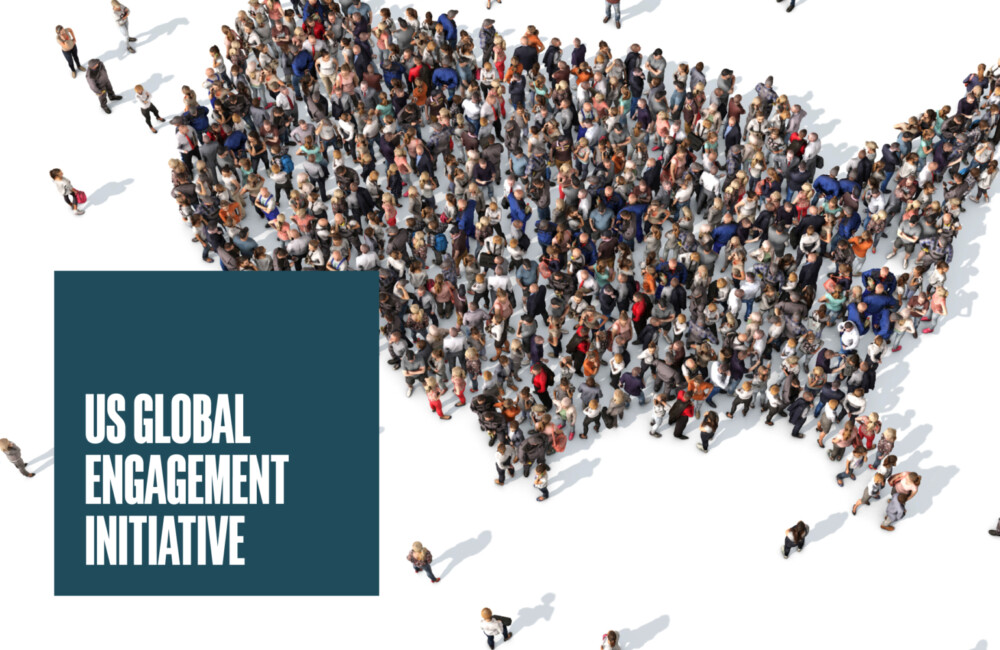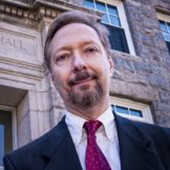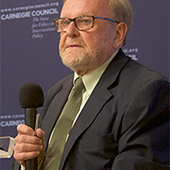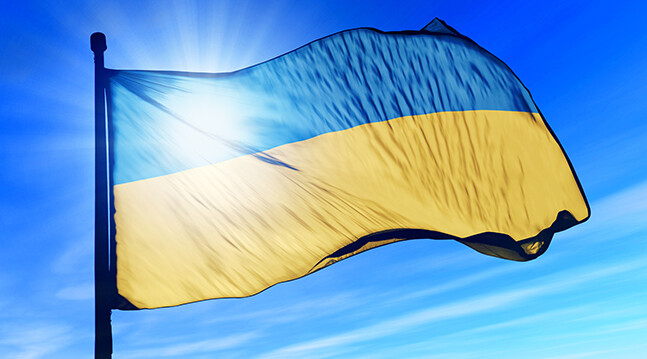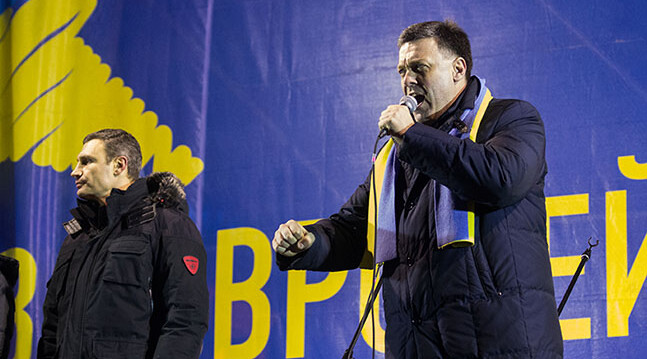From Odessa, political scientist Dr. Nicolai Petro discusses the unrest in the eastern Donbas region and possibilities for a diplomatic resolution of the Ukraine crisis.
DAVID SPEEDIE: I'm David Speedie, director of the program on U.S. Global Engagement at the Carnegie Council.
I am delighted to welcome back today Professor Nicolai Petro from Odessa, Ukraine. Professor Petro is in the Department of Political Science at the University of Rhode Island and is currently on a Fulbright Fellowship in Odessa in southern Ukraine.
Nicolai, welcome back for another round.
NICOLAI PETRO: Hello, David.
DAVID SPEEDIE: It seems that every time there appears to be a lull in the Ukraine crisis it is not only ongoing but spreading. When we think Crimea has settled down, now we are riveted on Donbas in southeastern Ukraine.
First of all, we always begin with an overview. Can you give us something of an overview of how you see what is happening in the southeast at the moment?
NICOLAI PETRO: Well, it seems to now be less meaningful to talk about the south and east together and more sensible, perhaps, to talk about the east, where we have the Donbas, and to the north of that the region known in Ukraine as Slobozhanshchyna, sort of a Cossack land, and the south itself, with the region known here as New Russia, or Novorossiya.
What we have been seeing these last couple of days is opposition movements seizing government buildings in the Donbas regions, but not finding similar support in the south, finding moderate support in Kharkiv, which is to the north in Slobozhanshchyna.
So that's where we are right now, sort of a divided front in the south and the east.
DAVID SPEEDIE: Obviously, one of the questions that comes into play here is the role of Russia in fomenting this. Some fairly inflammatory rhetoric has been used—special forces and agents, provocateurs, inspired by Moscow. So I guess the key question—it certainly is reported here as if Moscow is stirring this particular pot where there is a new wave of protests. Is that your perception?
NICOLAI PETRO: I don't have any particular way of knowing. But I would say that politicians here in Ukraine are divided on that. In other words, there seems to be one group who are in charge in Kiev right now who are indeed arguing that this is all a creation of Moscow, whereas a number of spokesmen and leaders for the Party of Regions and the Communist Party have argued that this is essentially the result of Kiev not listening to the demands of the indigenous population.
And we have one other actor, a very influential actor, in the person of Ukraine's richest individual, Rinat Akhmetov, who, according to reports, is also probably one of Ukraine's largest employers, with over 300,000 employees across the country, who hails from the Donbas region. He too argues that this is mostly motivated by frustration of the local population with not being heard in Kiev.
DAVID SPEEDIE: Doesn't this go back really to the origins of the conflict, Nicolai, where at least one perception would be that this is very much a divided country, what happened in Kiev and Maidan was very much choreographed by the West from Lviv and western Ukraine, and that this was followed by, as I recall, some western governors and officials being appointed to important posts in eastern provinces? Hasn't there been something of a buildup to this that really goes back to the origins of the crisis?
NICOLAI PETRO: Well, throughout this crisis, and even before, there have been two narratives in the country. These narratives go back many decades, even perhaps to before not just World War II, but even before World War I.
One narrative has it that the western Ukraine is the heart of the true Ukrainian identity, if you will, Ukraine's equivalent of Piedmont in Italy, the source of inspiration for nationhood. According to this narrative, the western region's influence in the Maidan, both in 2004 and now in 2013 and 2014, was decisive in achieving political transformation.
Now, the fact that this political transformation was perhaps done not entirely in a constitutional manner is less significant, according to this narrative, than the fact that it was popularly inspired. The western portions of the country claim, indeed, to speak for the entire country, to be the truly authentic Ukraine.
Then we have the eastern and southern regions, whose narrative going back decades is very different, leading up to the fact that both in 2004 and again more recently they see what is happening in Kiev as more of an attempted coup and an attempt to impose a certain political vision on the country and a certain cultural vision on the country that excludes the east and the south, or at least excludes perhaps not the people so much, but their interpretation of Ukrainian identity. By that I mean Russian-speaking, Orthodox, with close ties to Moscow, close cultural affinities, economic ties, and sympathies for Russia in the east and the south.
So what we see consistently is splits between how populations in the east and the south and the population in the west and the center of the country view the political legitimacy of the government in Kiev right now. Roughly speaking, we have 75–80 percent supporting the government in Kiev and its political aspirations in the west; maybe a little bit less in the center, but still essentially supportive; and the east and the south 75 percent negatively assessing the course of the current government.
This has political implications. One of the big problems that is fueling, I think, the resentment and frustration in the east, and to a lesser extent in the south, is one of the demands, or one of the things that came up in the discussions that Rinat Akhmetov, the oligarch, had with the people who occupied the Donetsk regional government building—namely, they said, "We'd like to be listened to"—and their goal is to invite the authorities to come to Donbas and to tell them what their concerns are.
Well, Akhmetov said, "Well, you can do that, but if you are concerned about who is in charge, you can vote both in May and you can vote later."
They said, "There's no one to vote for." In other words, they don't see a viable candidate because their party, the party that traditionally represented them, the Party of Regions, is in disarray and has been decimated. So they feel essentially that in the current electoral conflict they have no possibility even of having their voice heard.
DAVID SPEEDIE: Just to clear up a couple of points of reference there, the Party of Regions is of course Yanukovych's party. You made a couple of references to 2004, and that was of course the so-called Orange Revolution that brought then-President Yushchenko and Prime Minister Tymoshenko, and certainly from the point of view of the east, and perhaps Ukraine generally, was hardly the brave new world for Ukraine that the west had hoped for 10 years ago.
NICOLAI PETRO: Right. It's also fair to say that by the end of Yushchenko's term he was widely perceived, both in the eastern and the western parts of the country, as not having fulfilled the hopes of the Orange Revolution. In the west, however, this merely galvanized them to take their case outside of the political process to the streets and to take any opportunity, which obviously crystallized at the end of 2013, around the issues that were well known at the time of Yanukovych's corruption and the controversy over the accession to the European Union and to mobilize popular support around those.
It remains, however, true that the majority of the people on the Maidan—although there were representatives from many different regions, we know from surveys taken in January and late February that well over 80 percent of the people there were from western Ukraine.
DAVID SPEEDIE: Let me come back to Donbas for a moment and the east and the south. Is what is going on there basically a secessionist impulse? Is this another Crimea in the making in any of that particular region, or there a spillover possibility?
NICOLAI PETRO: I know they were referred to in two ways, it seems, in the Western press, as sometimes just Russians, although they are obviously Ukrainians, not Russians; but sometimes as pro-Russians and sometimes as secessionists.
Let me talk about the secessionists first. As far as I can tell, there have not been demands for secession. The most extreme agenda was that proposed by the so-called Committee for Donbas, which proposed for May 11th that a referendum should be held in the Donbas region for the creation of a Donetsk Republic. If such a referendum was not allowed by the authorities in Kiev, then there should be a declaration of independence and that an appeal should be made to Russia for peacekeeping troops to be introduced.
Now, you can take all of this as euphemisms, of course. It sounds, indeed, very similar to a Crimean scenario. But nevertheless, one could say certain legal niceties are being observed. They are not actually calling immediately for secession and joining Russia.
But the issue there in the discussions that they have been having with the politicians suggests to me that the agenda of secession is something that is basically being held out as the punishment for not listening to the desire of these local representatives for greater regional autonomy.
It's interesting that the government in Kiev is indeed offering a packet of reforms that includes greater regional autonomy. It's not exactly clear how much that will involve, but the rhetoric at least is there. They are saying that, "We do indeed want to give more autonomy to the regions."
The main concern with that, and why it's not immediately embraced, in regions like Donetsk, and maybe Kharkiv and Luhansk as well, where the occupations have occurred of government buildings, seems to be that these sorts of promises, including, for example, promises on language equality, have all been made before. What needs therefore to change is for them to be constitutionally framed. In other words, there needs to be a guarantee of local rights within the constitution.
A lot of social scientists argue that that's federalism, and the fact that authorities in Kiev balk at the word "federalism" suggests to those who are on the other side that they are not indeed serious about wanting to offer meaningful local autonomy.
DAVID SPEEDIE: I was just about to follow up on your comments on this with the thought that what is being offered, it seems, from Kiev would not be close to the Russian proposal for a federalist solution. Then that leads into—
NICOLAI PETRO: There is a bit of semantics here. One would think that if there were any goodwill—and there apparently is very little goodwill—between, let's say, these rebels in the east and Kiev—but to the extent that there could be, you could basically work around this issue and agree to the essence of what is being proposed, maybe terming it or calling it something else.
Kiev sees this apparently as a slippery slope; in other words, if you grant them anything beyond a limited autonomy, it merely sets the stage for further regionalization, which will eventually lead to federalization, which will of course eventually mean that local populations will always feel much more attracted, and perhaps even want to secede to Russia.
DAVID SPEEDIE: The irony here, of course, is that this is something of the conundrum that Russia faced back in the 1990s immediately after the collapse of the Soviet Union. I mean obviously there are differences.
But I remember Yeltsin's famous phrase "bite off as much as you can digest." Of course, this was taken quite literally, in Chechnya for example. But also, one remembers that the Muslim Republic of Tatarstan essentially declaring almost independence. I remember seeing their President Shaimiev come and open ministries and appoint ambassadors and so on and so forth. So there's a little ironic twist of history here.
NICOLAI PETRO: One can see the threat here, and I don't term this threat as really something that Russia wants these regions to come back. But let's not forget that the GDP per capita in Ukraine, even in its richest regions in the east, is one-fourth that of Russia. It would be a tremendous burden for Russia to have to absorb and to pay for bringing those regions up to the average level of life in Russia. I just think that issue alone makes any sort of specific Russian interest in incorporating the eastern regions of Ukraine minimal.
DAVID SPEEDIE: Yes. And, of course, the differences persist between Crimea and eastern Ukraine, historic and otherwise. So it's wrong just to conflate.
NICOLAI PETRO: At this point maybe it's worth discussing the other moniker, which is "pro-Russian." What does that mean actually?
When people raise the Russian flag over government buildings, does it mean they want to secede? Again, the rhetoric doesn't correspond to the symbolism. So the symbolism, I think, of the Russian flag is misunderstood in Western press accounts.
What the Russian flag symbolizes is clearly a strong cultural affinity. What other symbol is there for Russia? I suppose sometimes you see at these manifestations the two-headed eagle, you see the House of Romanov. You also see various symbols and placards which say "We are not Russia, but we are Russ"—in other words, the ancient historical cradle of Slavic civilization, which began in Kiev and incorporates Ukraine, Belarus, and Russ proper.
So if there is a broad political agenda that I think perhaps embraces or encapsulates all of these rebel groups, without wanting to say that this is their clear political objective, because it's a romantic objective, it seems to me it would be a sort of pan-Slavic federalism, not really anything that is associated with any particular government or nation-state in existence today.
DAVID SPEEDIE: That's really interesting, Nicolai. I remember a quote that goes back again, I think, to the origins of this whole trauma that came from the east. The quote was, "We don't want to be part of Russia, but we don't want to be apart from Russia."
NICOLAI PETRO: Yes, that's a good way of phrasing it as well.
The flag is, therefore, simply a cultural symbol because it's the most widely recognized one. The white, red, and blue colors, of course, you see in nearly all the flags of Slavic countries in Eastern and Central Europe as well.
DAVID SPEEDIE: Yes, exactly.
I was really interested in your comments about Mr. Akhmetov, the oligarch with 300,000 employees. This seems to me to speak to—again it goes back to perhaps Russia's dilemma in the era of the oligarchs and so on in the 1990s—but it seems to speak to something, if not anarchic, at least highly chaotic in the governance of Ukraine at this point, that seems to be forgotten in much of the commentary.
There is this narrative of a Ukraine that will seek unity with the West and democratic polity and so on and so forth. But we're an awfully long way from that.
The question beyond Akhmetov and his potential role is that of leadership now and in the foreseeable future in Ukraine. So many of the names we see coming up seem improbable—Mr. Klitschko and others. What do you see as the short-to-even-midterm prospects for the type of leadership in Ukraine that really would bring about or exert some quantifiable improvement in the internal situation?
NICOLAI PETRO: Well, there are presidential elections scheduled for May 25. Sometime after that, many people have spoken about the need for parliamentary elections to really reset the parliament, because although the members of parliament that are there now have been elected, many have abandoned their parties, they have formed new political coalitions. It is not at all clear—particularly this is the case with the Party of Regions—who they represent anymore, because the party and the groups and political and economic constituencies that they were elected to represent have basically faded from the scene. So there probably ought to be parliamentary elections sooner rather than later.
And then there is the issue of the constitution again, because each new government has imposed a different version of the Ukrainian constitution of 1996. Right now there are so many questions about both its legitimacy and how it is to be applied, and the constitutional court is under significant pressure and political difficulties. So it is hardly in a position to interpret the current constitution. There does need to be some sort of work on the constitution and a new consensus on the constitution.
Among the political candidates for the one thing that is currently on the books, namely the presidential elections, we have one clear leader, and that's Petro Poroshenko. He has absorbed Klitschko's constituents. Building on that and his own personal popularity and financial wealth, he appears to be the clear leader. The second candidate, but by a considerable distance, is Yulia Tymoshenko.
If one were to imagine that these two emerged in the final round, because no one surpassed the 50 percent barrier on the first round, and these were the two choices, it's hard to see who anyone that might have supported the agenda of the Party of Regions' candidates in the first round would vote for, because both of these candidates represent the opposite political agenda. Assuming the Party of Regions still retains its traditional popularity in the east and the south, we are left again with a divided nation at the end of the elections with whichever of the two leading candidates right now, Poroshenko or Tymoshenko, representing only a very small regional constituency of the country—although, of course, they will claim to speak for the entire country.
DAVID SPEEDIE: Tymoshenko is a fairly familiar name obviously, Nicolai, prime minister after the Orange Revolution, then of course imprisoned and recently released from prison and so on. Poroshenko is perhaps less well known over here. Give us a thumbnail sketch of his background.
NICOLAI PETRO: He, like Yatsenyuk, the current prime minister, has held a number of positions in government—not top positions, but in the Ministry of Foreign Affairs and in security issues, and of course he has business connections in Russia as well as I think a factory in Slovakia as well as Ukraine. So he has covered many technical bases that give him, I think, a good grasp on the locations of power and influence in Ukraine.
The question that needs to be asked is: Is he the kind of politician who can reach out to an additional constituency? Again, I think of the populations in the east and the south as a constituency with a different agenda from the population in the west and even the center.
One thing that has not yet taken place—there is still time to do so, even in the political campaign—but we have not yet seen any of the leading candidates from the opposition travel and be able to rally support in regions in the east and the south where they are not at this point well-liked and well-understood. And conversely, leaders of the Party of Regions are loathe to venture into the west, which they know is hostile territory.
I'm just afraid that at the end of this presidential campaign we will not wind up with a country that is any more united than we have now.
DAVID SPEEDIE: It sounds like the old adage "the more things change, the more they stay the same."
Finally, Nicolai, there is a veritable feeding frenzy, of course, in all aspects of this over in the West. In the Financial Times today, a headline "Transnistria Feels Squeezed by Clash Between East and West." I thought about you, because it says in one fairly provocative paragraph: "NATO's top commander has warned that Russian divisions could sweep into Transnistria next, a move that some fear would give Moscow a foothold from which to seize Odessa on Ukraine's Black Sea coast."
Are you lying awake at night waiting for the Russian invasion?
NICOLAI PETRO: No, and I don't think anybody here seriously expects anything like that. As we can see, opinions are divided, even in the east, and especially in the south. It's not as clear-cut a case as seemed to be in Crimea.
Their popular sympathies are divided. Most people are—I think the largest political party would be a group that would be able to rally around the idea of, "Can't we all just stop fretting and get back to work and taking care of the economy, which is undergoing rapid collapse?"
The local currency here, the hryvnia, has lost 40 percent of its value in the last month. I believe the International Monetary Fund assistance is going to see us through the presidential elections, and I think that is essentially its purpose. But after that the full brunt of the economic reforms and the weakness of the economy will come to bear on people. That is going to be the time when we need serious leadership and probably, again, leadership in the European Union, the West, and Russia to really come together in order to provide critical aid if the country is not going to essentially fragment and collapse.
DAVID SPEEDIE: I hope they're listening in to you, Nicolai.
My last semi-serious question was just to make sure that you are okay, because we benefit greatly from your bulletins from Odessa and, indeed, looking across the situation in Ukraine. We thank you again for being with us.
Again, our guest today has been Dr. Nicolai Petro, professor of political science at the University of Rhode Island.
Thank you again, Nicolai, and be well.
NICOLAI PETRO: Thank you.
